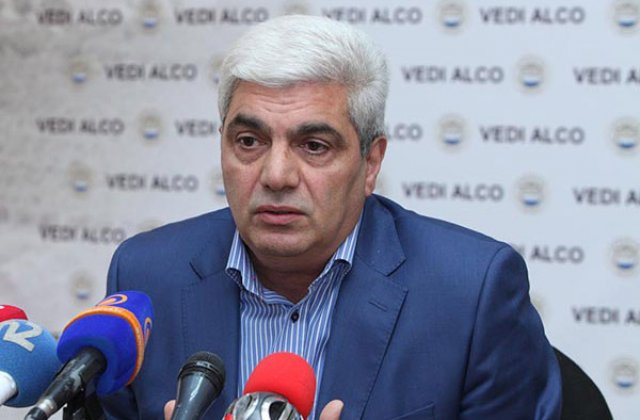Armenia has restraint mechanisms against Russia-Azerbaijan arms deals, which may be applied: Stepan Grigoryan

“If the Armenian side is discontent with the policy pursued by Moscow, first and foremost, it should observe its own policy,” Stepan Grigoryan, head of the Centre for Globalization and Regional Cooperation, told 168.am, reflecting to Armenia’s toolset of controlling Russia-Azerbaijan new arms deals.
Azerbaijani president Ilham Aliyev stated during the World Economic Forum in Davos that Baku is holding negotiations with Moscow on supply of new armaments as it’s interested in the latest defense systems. “Yes, we are negotiating for new purchases. You know better how the Russian military industry is developed. We are interested mainly in the most contemporary defensive weapons, new designs. This applies both helicopters and defense systems, the entire complex,” he said.
Parallel to this, after the April war Armenia received new armaments from Russia, then developed Armenia-Russia joint troops, within which modernization of Gyumri’s 102nd military base continues.
Stepan Grigoryan, head of the Centre for Globalization and Regional Cooperation, said he wonders when Armenian president Serzh Sargsyan complains of armaments selling, as due to that very policy the level of regions militarization, Russia’s military presence in the Caucasus, in particular, in Armenia, is strengthening and enlarging, which leads to militarization of the conflict zone. According to the analyst the guilt of policy pursued by Azerbaijani authorities is found as well: Azerbaijan intends to settle NK conflict through force, for which it purchases armaments from Pakistan, Israel, Russia, and other countries.
“If the Armenian side complains of the policy pursued by Moscow, first and foremost, it should observe its own policy. What is Armenia doing? Armenia is signing any document on military cooperation brought by Russia, I mean united air-defense system, Armenia-Russia joint troops, i.e. contribution of Armenia’s authorities is observed here as well. On the other hand, Azerbaijan’s contribution may be found. Azerbaijani authorities intend to settle NK issue through force, they buy armaments, it leads to the support of the Russian side, and that side supports partially, and all this process leads to militarization of the region.
Russia, as an OSCE MG Co-Chair and mediator, militarizes the conflict zone by selling armaments to both Armenia and Azerbaijan. The USA and the EU member countries have official decisions on not selling armaments to Armenia and Azerbaijan, as they have unsettled conflict, as compared to this position, Russia is selling armaments,” Stepan Grigoryan said.
He considers it’s difficult to control this process, as Russia and Azerbaijan are sovereign countries, capable of signing agreements without third parties in the military field as well. However, according to him, mechanisms of restraint are available. “One of them is CSTO, members of which are Armenia and Russia. Members of such alliance assume responsibilities towards each other, pursuant which if any of the member countries is in danger, is assumes support of others. However, here the contrary process is observed— Russia is selling armaments to Azerbaijan instead of supporting us. One of the mechanisms in this platform is raising issues and proposing requirements. CSTO should think over neutralization of threats to Armenia.
The point is, despite the result, we should repeatedly raise this issue. The next mechanism is OSCE, within which there is a contract of controlling ordinary armaments. It’s clear that Azerbaijan is being intensively armed, thus, they violate agreements within those circles, through this mechanism Armenia may also raise an issue.
During another summit an issue should be raised or discontent should be expressed through CSTO Secretary General on selling armaments to Azerbaijan. Or if Azerbaijani president appeared with such a statement, the Armenian side should raise the issue through CSTO why Russia plans to sell armaments, whether that reflection corresponds to reality, i.e. we have the toolset, our positions are weak, as we don’t raise these issues, we don’t point at mistakes,” Stepan Grigoryan said.
By Araks Martirosyan

























